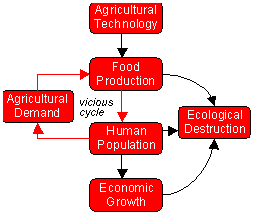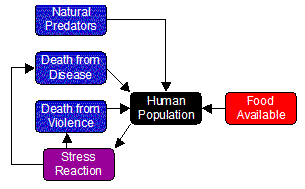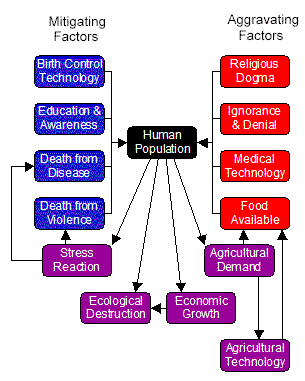 In The Hidden Dimension, his dated (1969) but thoroughly researched breakthrough study of the field of proxemics, Edward Hall provides lots of food for thought for environmentalists and architects. Proxemics is the study of space (here on Earth not out in, er…, space), and how we use and perceive it. Hall makes it clear that an understanding of the subject also requires that we understand how time is perceived, since it is, after all, one of the dimensions we move through. This is a social study, not a scientific one. In the belief that ‘perception is reality’, Hall introduces us to a whole new and valuable world of investigation, one that scientists, in their zeal for ‘real’, have overlooked. The first part of the book was of particular interest to me because I’ve been writing a lot on these pages lately about overpopulation, and the book describes extensively how we, as animals, react physically and socially to overcrowding. Last week I cited Daniel Quinn’s Story of B which ascribes human overpopulation to one simple factor: production of excess food. This is illustrated in the chart above. To Quinn, it’s simply an issue of imbalance. Readers of my article last week had mixed opinions on whether food production really is a direct factor, and were frustrated that having hypothesized the root cause of and solution to the problem (“produce less food”), he offered no suggestions, indeed no hope, on how to implement the solution. Readers also suggested the equation is overly simplistic, and misses important variables. Hall proposes some additional variables and backs his argument up credibly. To Hall, one key variable is the adrenal system, by which he claims the balance of all life on Earth is regulated in a way much more ‘humane’ than mass starvation: When crowding becomes too great after population buildups, interactions intensify, leading to greater and greater stress. As psychological and emotional stress builds up and tempers wear thin, subtle but powerful changes occur in the chemistry of the body. Births drop while deaths progressively increase until as state known as ‘population collapse’ occurs. Such cycles of build-up and collapse are now generally recognized as normal for the warm-blooded vertebrates and possibly for all life. Contrary to popular belief, the food supply is only indirectly involved in these cycles.
The adrenals play an important part in the regulation of growth, reproduction and the level of the body’s defenses. The size and weight of these important glands is not fixed but responds to stress. When animals are too frequently stressed, the adrenals, in order to meet the emergency, become overactive and enlarged…Mortality [in major animal die-offs that were extensively studied by John Christian] evidently results from shock following severe metabolic disturbance, probably as a result of prolonged adrenocortical hyperactivity. There is no evidence of infection, starvation, or other obvious cause to explain the mass mortality. It is now widely held that the processes of selection which control evolution favor the dominant individuals in any given group. Not only are they under less stress but they also seem able to stand more stress. The adrenals work harder and become more enlarged in subordinate animals…A blowup of aggressiveness and sexual activity and accompanying stresses overload the adrenals. The result is a population collapse due to lowering of the fertility rate, increased susceptibility to disease, and mass mortality from hypoglycemic shock. The dominant animals, however, usually survive. So from a systems perspective, we actually have several more variables at work than Quinn suggested. Before the invention of agriculture, the balance of human numbers was preserved at no more than 300 million people, for three million years. Food availability caused numbers to rise, natural predators kept the balance in check. Whenever that failed, as in medieval Europe, the stress balance that Hall describes kicked in: ‘naturally’ lowered birth rates, and more death from violence and stress-related disease, until the overcrowding was alleviated and adrenal levels could return to normal. It’s nature’s way of sabotaging the system when it gets out of control. In fact pox viruses, of which there are thousands, affect every species on Earth (except, and only for the last couple of decades, man) and are amazingly species-specific: They flare up only in densely concentrated populations and are nature’s (or god’s) perfect population control mechanism. As a consequence, human population has grown virtually unchecked for 30,000 years. We respond to each new disease with new medical technology, and to the explosion in human violence with increasingly strict laws that subjugate, restrict human freedom and incarcerate non-conformists. We’ve even introduced, recently, medical technology that artificially reduces stress itself (starting with the lobotomy, whose first gruesome practitioner won a Nobel prize for it). We are placed in ever-more stringent and oppressive physical, psychological and social strait-jackets to keep our ‘natural’ reaction to the massive, psychotic stress that unprecedented overcrowding produces, all in the interests of coping with more and more people. The education system ‘teaches’ us relentlessly that a passive, highly-structured, urban, hierarchical ‘consumer’ society is the only way to live. Nevertheless, famine, war, disease, crime, domestic violence, mental illness, suicide, depression — all manifestations of stress, are exploding as quickly as our numbers. It’s a pressure cooker waiting to blow. Our culture has so indoctrinated us that the very concept of a world with fewer people is inconceivable, even horrifying, to most of us. Our laws, our religions and our culture have reinforced our natural inclination to procreate and perverted it into a fundamental ‘right’, even a responsibility. Despite this, because we instinctively know something is very wrong (our instincts reflect our full three million years of evolution, not merely the most recent ‘civilized’ 1%), in recent years we have added the two new boxes in the upper left of the chart above, to once again balance the forces that determine population size:
So now we again have some sort of balance, unstable as it may be, and it bears tribute to our amazing instincts and ingenuity. The problem now is momentum. The system has been out of whack for 30,000 years and, like an SUV careening out of control on an icy road, the recently-applied brakes are not working fast enough to prevent collision. We need some additional variables to be introduced quickly into the final chart above, to bring human population growth to a quick halt, and start reversing it back to levels that are not only sustainable, and will allow our severely damaged planet to heal, but which will also allow us to throw off our cultural shackles and learn to live fully and naturally again, in a world that is healthy, happy and at peace, and as part of the natural ecosystems of which we are, contrary to all our ‘new’ culture’s propaganda, inextricably a part. We cannot depend on governments or business for this — they’re invested in the status quo, in deep denial, and as the ‘dominant’ members of our society they are the elite that Hall says will survive the eco-tastrophe when we perish anyway. They control the machinery of production and will not reduce food availability, and will not invest in radical technology of any kind to reduce human population — it’s not in their nature, means or interest to be ahead of the mainstream of public thinking. We cannot depend on education alone — there is not enough time. We cannot depend on nature’s own mechanisms to restore the balance in time (though with global warming, Mad Cow, species extinction, AIDS and other new diseases nature is trying) — we have too many countervailing technologies in place. We surely cannot depend on the gods, or the lawyers. I am increasingly and reluctantly coming to the conclusion that the only answer — if there is an answer at all — is coercive. Not in the political sense — people are already doing all the unnatural things they can bear, and no political edict to reduce population could ever succeed. We must sabotage the system. We must run the careening SUV off the road before it crashes and kills us all. I know I’m being a bit cryptic — I’m still thinking this through. I shudder at this conclusion, and the options I can imagine for doing it fill me with dread and revulsion. Just as our culture has given us no choice but to live within its terrible and suffocating walls, we must give this culture, and its people, no choice but to reduce its numbers and its impact on our dying world. I think I always knew and feared my thinking would come to this. My instincts have long told me there is no solution that is not radical. Question is, how to sabotage the system with a minimum of suffering. There is more in Hall’s book that I want to talk about. He has some important ideas that could change the way we think about architecture, about other cultures, and about how we communicate and relate to each other. It’s all about perception, and it’s fascinating. Look for another article on The Hidden Dimension, much less grim than this, next week Thanks to the two kind readers who helped me find this book. |








Please read “The Oil We Eat” by Richard Manning in this month’s (February 2004) Harpers. It’s not really about Iraq.
Sounds like the 12 Monkeys to me. Humanity is a cancer that must be destroyed. The system produces the creator of the pandemic that provides the feedback mechanism needed to regulate its run away growth.Scary stuff there. I liked Soylent Green much better. Convince people that their useful life is over give them a nice psychedelic coctail laced with an overdose of barbituates and let them drift off to be recycled.
Sam: Someone (perhaps it was you) recommended this article to me before. I’ve been trying to get an e-mail address for Manning to get the OK to reproduce this on my blog (it’s not on Harpers’ Online). I’m going to keep trying, but in the meantime I’m going to post it as an accompanyment to this article. Thanks for the reminder.
Hall proposes that the situation is out of hand, and so he/”we” must -coerce- humanity in dreadful and revolting ways… “give this people no choice but to reduce its numbers.”How did he come about this authority?If we are doing wrong, and are moving /past/ sustainability, nature will take care of itself and strike back at us.
Basil Jason GoMetro Manila, Philippines More Furious than a Forest Fire People who have read population control articles have probably heard of the English economist Thomas Malthus who proposed that population increases at a geometric rate whereas food supply grows at an arithmetic rate if factors are held constant. Probably, Malthus